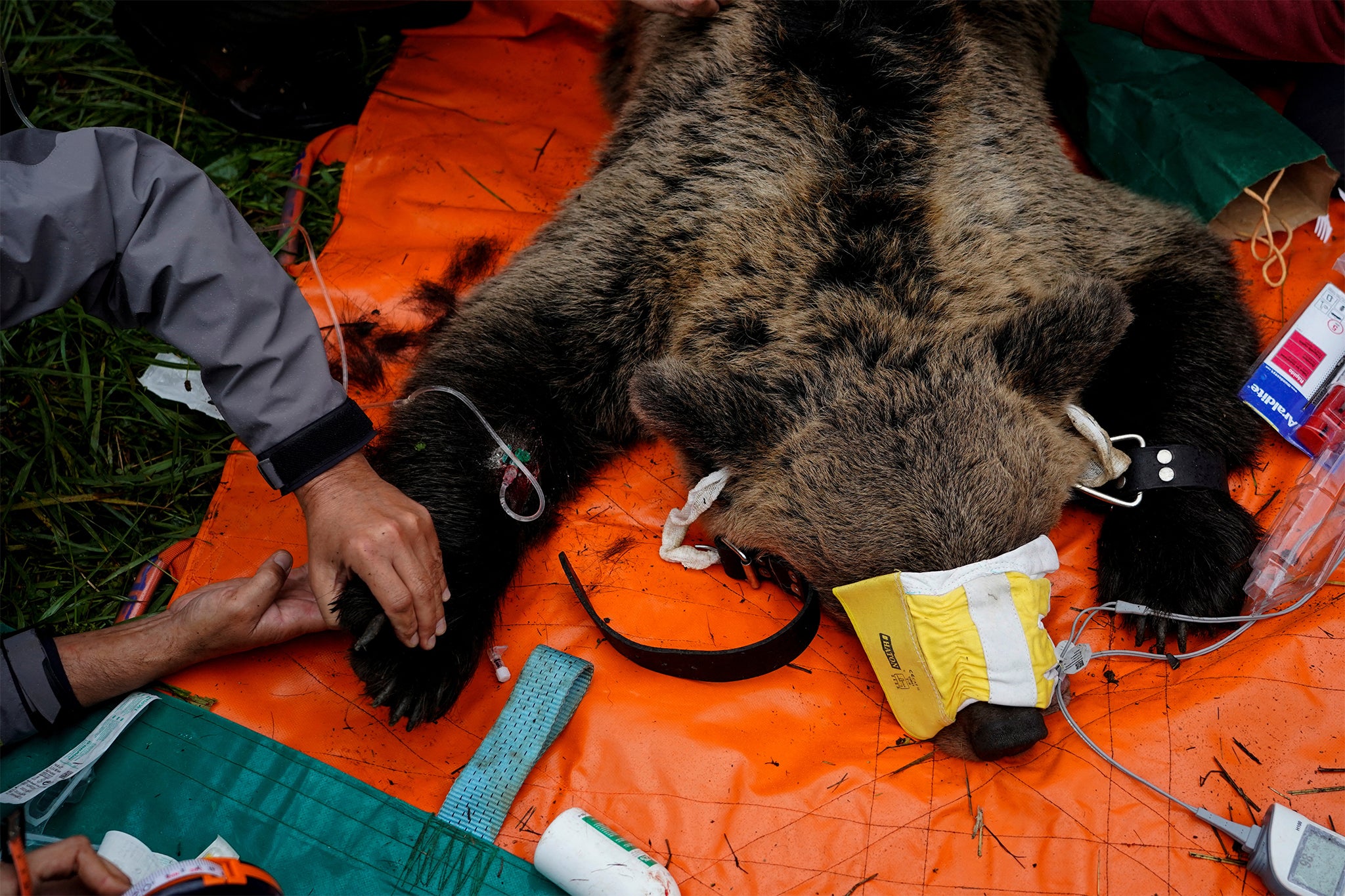Bear patrol steps up to keep locals safe in Spanish mountains
As a resurgent Iberian brown bear population poses challenges to residents, Juan Medina meets the rangers helping humans and animals to coexist

Spain’s brown bears, once nearly extinct, stray into the mountain villages in the north of the country so often these days that the regional government of Castile and Leon has set up a patrol for locals to report animals on the prowl.
The patrol, which has nine rangers, protects residents and their crops in the mining town of Villablino, in the nearby province of Palencia, and other surrounding areas, aiming to keep the endangered Iberian brown bears safe and healthy and allow humans and animals to coexist.
Reuters was granted exclusive access to the patrol over the past three years, accompanying rangers on their nocturnal callouts.
Adult bears can weigh as much as 150-250kg and can measure up to 2 metres. They can live for up to 30 years. Three decades ago there were only 60 bears left in Spain but today their population is more than 400.
The higher number of bears is leading to a greater number of encounters with humans, however. For some, the bears are unwanted intruders but others welcome them and the increased tourism they attract.
If locals spot a bear they are advised to call the rangers and keep calm.
To ease locals’ concerns, the patrol must act fast. As soon as staff receive a call to their 24-hour phone line, they grab their radios, rubber ball shotguns and tracking devices and rush out the door.
Their mission is to deter the bears from the villages by firing warning shots while following a strict protocol.
“The increase in the bear population leads to an increase in conflicts [with humans],” said patrol coordinator Daniel Pinto. The bears now approach the villages more often as they struggle to find enough food up in the mountains, he added.
Villager Angeles Orallo, 73, is one of those who finds the bears’ presence challenging.
“We are older people... the fact that we can’t go out for a quiet walk is sad,” she lamented. She has been struggling to keep the bears out of her vegetable garden.
But while some locals feel unsafe and worry about their crops, the patrol is proving a boon for the Iberian brown bear population and is providing an income for locals from tourists who come to the region to spot the bears, still considered endangered, in the Cantabrian mountains.
Thanks to more awareness, strong surveillance and compliance with conservation rules, the Iberian brown bear population is growing.
The patrol also wants to improve understanding of the bears’ behaviour. To that end, a team of veterinarians, biologists and mountain rangers developed in 2021 a new satellite system to monitor the animals, as well as an innovative, remote-controlled cage that can trap the bears without trapping other species.
Reuters
Subscribe to Independent Premium to bookmark this article
Want to bookmark your favourite articles and stories to read or reference later? Start your Independent Premium subscription today.

Join our commenting forum
Join thought-provoking conversations, follow other Independent readers and see their replies